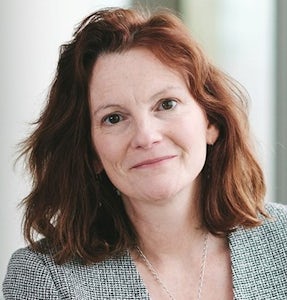Mills & Reeve’s managing partner Claire Clarke speaks to The Lawyer ahead of her panel discussion at the Business Leadership Summit, addressing the distinctions between the ‘then’ and ‘now’ lawyers.
What do you think the solution is to the ‘talent crisis’ the industry is currently experiencing?
First, it’s important to try to understand some of the causes of the “talent crisis”. A recent survey by the Law Society found that nearly half of legal sector workers believe that reaching senior levels demands an unacceptable work-life balance. This is leading to talent shortages and a lack of diversity at the top. While women make up more than half of solicitors at UK law firms, only 28 percent of partners are female.
Increasingly lawyers want more than just an acceptable or good salary and benefits and interesting work. Firms can improve engagement levels by building genuinely inclusive and collaborative cultures, which respond to the needs of their people as well as enabling firms to deliver the best possible service to their clients.
As part of that there are some important areas firms can work on and over the last couple of years we have introduced a wide range of new initiatives through our 2020 strategy, which focused on empowering our people and helping them to develop to the best of their ability. These include seeking to embrace flexible working and agile working practices consistently across the business as well as enabling staff to manage work alongside other responsibilities.

We value staff at career crossroads by providing extra support around breaks through career, maternity or paternity mentoring plus support employee wellbeing by seeking to ensure all team members know how to have helpful and productive conversations, create a safe environment and spot signs of stress in colleagues.
Wherever possible people should have an acceptable work life balance. This can be achieved in part by establishing consistent client teams so that staff can take breaks and holiday without compromising on client care and by seeking to create a collegiate and supportive culture with as little hierarchy as possible.
Clearly there is much more work still to do but our determination to be an exemplar employee is paying off. Ninety-seven per-cent of our staff say they would recommend the firm as a good place to work, and we’ve been named in The Sunday Times’ 100 Best Companies to Work For list for a record 16 years running.
In your opinion, what are the main distinctions between the ‘then’ and ‘now’ lawyers?
The key differences are largely driven by the huge changes we have seen in technology in recent years. Lawyers need to deal with a near 24-hour cycle of email traffic and ever increasing demands from clients for a rapid response. The benefits of technology and the fact people can pretty much work any time anywhere does have downsides in terms of the potential impacts on lawyers’ resilience and wellbeing and feeling the pressures to be “on call” and responsive around the clock. Firms need to help their lawyers manage these challenges.
All lawyers need to be technically savvy and agile in terms of the use of technology and its impact on how legal services are delivered and priced. We need to adapt quickly to new technology both in terms of delivering legal advice and in other important aspects of the job such as business development. It’s now commonplace for a lawyer to use social media to make contact with a potential new client which would have been unheard of not so long ago!
Lawyers, whatever generation we’re talking about, need to ensure they are also good at the “old style skills” such as negotiating over the telephone and face-to-face meetings and these vital attributes are not lost by technological “advances” such as the prevalence of communication by email.
Some skills have not changed and remain core – fundamentally, the ability to give commercially, solution focused advice tailored to a client’s needs, business and market.
What more needs to be done to improve the collaboration between in-house and law firms?
I think there is still more law firms can do to really understand the challenges facing in–house teams both on a day to day and more strategic basis. Secondments give really valuable on the ground experience of life at the coal face for an in-house lawyer and equally cross secondments to law firms can help with collaboration and assist with the training needs of in-house teams.
We see our relationships with in-house legal teams as vital and to this end we have recently created a new tool to help busy in-house teams better manage their caseloads and interact with their external advisers. The idea came from our first ever legal hackathon resulting in a number of novel ideas to enhance the client experience.
However, sitting down and listening to clients and really seeking to understand the issues they face is key. What are their current and up and coming challenges? How law firms can adapt the services they provide to really assist in making life easier for in house teams? We are about to speak to over 100 of our clients in this way as part of the planning towards our new 2025 strategy.
If you could do any other job in the world, what would it be?
I have always fancied life as a garden designer. You can really see the results of the work you do and compared to my current role fresh air is a clear benefit, flowers are also easier to grow and organise and definitely don’t argue with you!
Claire Clarke is part of the 30+ speakers making up this year’s speaker line-up at The Lawyer’s Business Leadership Summit on 25th September. For more information on the summit, a coy of the agenda, or to inquire about attending, please contact Felicia Drakos on +44(0) 20 7970 4279




























